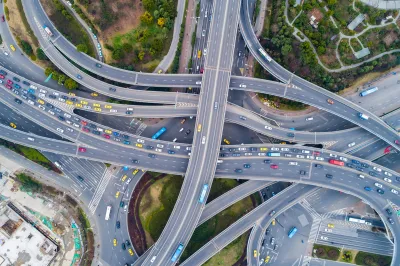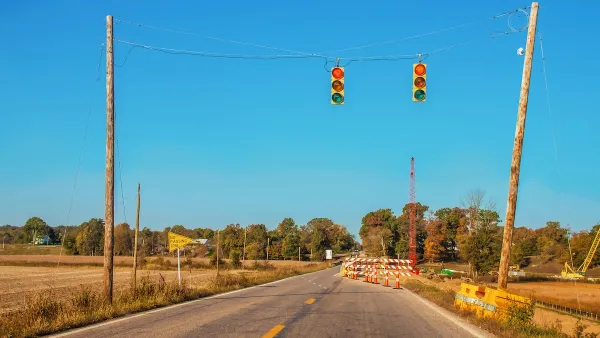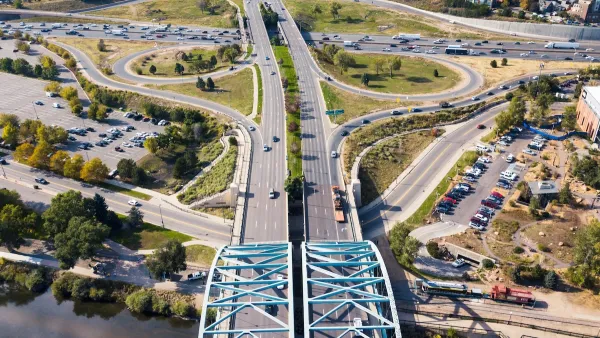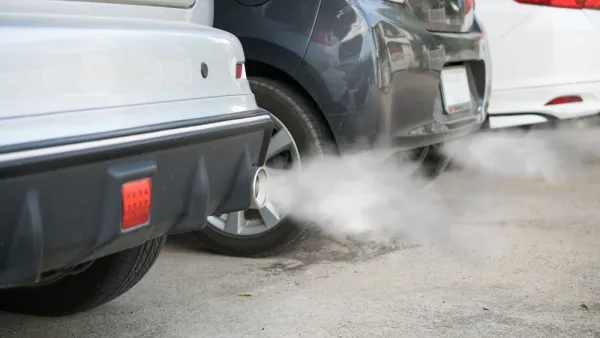While state leaders tout their climate goals at COP28, residents back home continue to fight highway expansion projects that induce traffic and increase emissions.

In an opinion piece in Streetsblog California, Kendra Ramsey calls out the state’s hypocrisy when it comes to transportation emissions.
Our state is promoting itself as a climate leader, and in some respects, that’s accurate. But California can’t claim the mantle of responsible climate stewardship while it continues to build freeways that increase emissions and pollute vulnerable communities.
Ramsey points out the contradictions between the state’s stated goals and actual policies: while state officials discuss climate change at COP28, “back in California, Fresno residents have had to sue Caltrans for failing to disclose the carbon impact of two new freeway interchanges that will contribute to a significant increase in truck traffic.”
For Ramsey, the key to real change is reforming Caltrans and other institutions that perpetuate outdated car-centric planning systems and insist on road building as a solution to congestion. Instead, “Caltrans should be inducing demand for active transportation by building protected bikeways with protected intersections that connect to robust local and regional networks of safe bike routes. It should be adding bus-only lanes and bus boarding islands, widening sidewalks, and improving conditions for people who walk or take transit.”
FULL STORY: California Can’t Be a Climate Leader Until it Stops Building Freeways

National Parks Layoffs Will Cause Communities to Lose Billions
Thousands of essential park workers were laid off this week, just before the busy spring break season.

Retro-silient?: America’s First “Eco-burb,” The Woodlands Turns 50
A master-planned community north of Houston offers lessons on green infrastructure and resilient design, but falls short of its founder’s lofty affordability and walkability goals.

Delivering for America Plan Will Downgrade Mail Service in at Least 49.5 Percent of Zip Codes
Republican and Democrat lawmakers criticize the plan for its disproportionate negative impact on rural communities.

Test News Post 1
This is a summary

Test News Headline 46
Test for the image on the front page.

Balancing Bombs and Butterflies: How the National Guard Protects a Rare Species
The National Guard at Fort Indiantown Gap uses GIS technology and land management strategies to balance military training with conservation efforts, ensuring the survival of the rare eastern regal fritillary butterfly.
Urban Design for Planners 1: Software Tools
This six-course series explores essential urban design concepts using open source software and equips planners with the tools they need to participate fully in the urban design process.
Planning for Universal Design
Learn the tools for implementing Universal Design in planning regulations.
EMC Planning Group, Inc.
Planetizen
Planetizen
Mpact (formerly Rail~Volution)
Great Falls Development Authority, Inc.
HUDs Office of Policy Development and Research
NYU Wagner Graduate School of Public Service





























